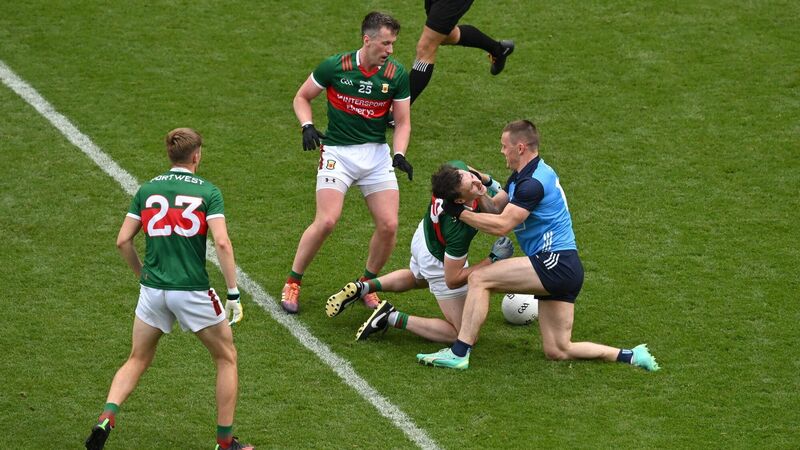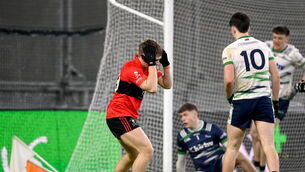Christy O'Connor: Once Dublin got a grip, they squeezed the life out of Mayo

DUBLIN GET A GRIP: Diarmuid O’Connor of Mayo and Con O'Callaghan of Dublin tussle. Photo by Brendan Moran/Sportsfile
Was it a sublime pass or just a hopeful punt into the danger zone? The outcome always adds a layer of makeup to the appearance but Davy Byrne’s delicate clip with the outside of his left boot that created Colm Basquel’s opening goal was a metaphor for the game up that point - and how the quality of the first half was so entertaining compared to the second.










